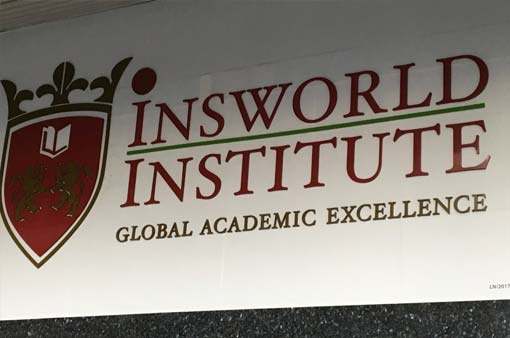

The big wide world, our huge planet has become a tiny village. Not literally, of course. But figuratively, the gigantic rock in the Milky Way galaxy we all call home has become a mere pebble. With advances in technology and air travel different cultures with different languages are in the same metaphorical neighborhood.
The need for a global language is fundamental to living in such close quarters. English has filled that void. Not only is English essential for us to communicate but it has become the language of opportunity: people generally earn more money if they are proficient in English. Some Asian countries came to English early as colonies of England or the United States.
Unfortunately, Cambodia came to English late (in 1989) and is behind in English proficiency. As we will see in this article, there are many forces at work which bode well for Cambodia improving English proficiency and being a more productive member of our global village.
Cambodia has made considerable strides in improving health outcomes, early childhood development, and primary education in rural areas. See Worldbank.org

One of the byproducts of globalization is the necessity of common language (a lingua franca) which can be used by native speakers of different languages. According to Luke Mastin, English is the de facto global language
Globalization may be defined as:
Mastin, L. (2011): Cambridge English Dictionary, Online Edition, 2016A situation in which available goods and services of social and cultural influences gradually become similar in all parts of the world.
We all know the world is changing, getting smaller. A high school student in Katmandu can listen to American pop music; an employee in Shanghai can share files on “the cloud” with a co-worker in Rio de Janeiro; a home-buyer in Brisbane can view a house in London in preparing for a home purchase--I’m sure you could think of scores more examples. It’s exciting, this global village we live in.
With our advanced telecommunication technology and air travel (where a businessperson can fly from Chicago to Bangkok in less than one day), companies are doing business with each other on a global scale like at no time in history. But how is a worker in Tokyo going to communicate with a client in Madrid if they each speak Japanese and Spanish, respectively?

One of the byproducts of globalization is the necessity of common language (a lingua franca) which can be used by native speakers of different languages. According to Luke Mastin, English is the de facto global language:
“in the fields of business, academics, science, computing, education, transportation, politics and entertainment.” [Mastin, L. (2011), “The History of English: how English went from an obscure Germanic dialect to a global language”
Mr. Mastin makes the valid point that a global language arises from the political and economic power of its native speakers. British imperial power from the 17th to 20th centuries institutionalized English in many countries across the world which had been British colonies. In these former colonies, the courts, legislatures, schools and universities still use English today as their official language.
In the 20th century, American economic, technological, and cultural dominance solidified the status of English as the world’s lingua franca. American advances in science and technology have been codified in English. Thus, in order to access scientific and academic resources one must know English. Mr. Mastin makes the following observation:
"But it has been largely American economic and cultural supremacy - in music, film and television; business and finance; computing, information technology and the Internet; even drugs and pornography - that has consolidated the position of the English language and continues to maintain it today. American dominance and influence worldwide makes English crucially important for developing international markets, especially in the areas of tourism and advertising, and mastery of English also provides access to scientific, technological and academic resources which would otherwise be denied developing countries."



Since the end of the Second World War and the advent of the United Nations, literally hundreds of international organizations have been created (e.g., The International Monetary Fund or The World Bank). Approximately 85% of these international organizations have English as at least one of their official languages. (French comes in a distant second, with less than 50% of the same organizations using French as one of its languages.) Moreover, about one third of international organizations use only English as their official language. And about 90% of Asian international organizations use English only.
I used to do corporate language training in Bangkok and had the opportunity to see globalization first hand. I taught English to executives at a major bank in Thailand. They told me that because there had been a dramatic spike in the amount of business their bank was doing with companies located outside of Thailand, they were under pressure to get up to speed in English. I also taught a group of high-level government ministers in Thailand’s Department of Energy.
They would frequently be absent from class because they were in a foreign country meeting government officials on matters of national importance; for example, one of my students traveled to Brazil to learn about energy development. His task was to observe Brazilian models, processes and procedures and bring that knowledge back to Thailand in order to improve Thailand’s energy development. Obviously, my student did not speak Portuguese (Brazil’s official language) and his Brazilian counterpart didn’t speak Thai. They needed to communicate in the global language: English.
In addition, throughout my career as an ESL teacher, I have asked my students why they want to learn English. And 99.9% of them have answered: so I can either get a better job or attend university in a country where English is the native language. Therefore, not only is English the global language, but it is also the language of opportunity
Now that we’ve learned that English is the language of opportunity, let us take a look at how Cambodia is doing in terms of English proficiency.
At the risk of stating the obvious: Khmer is the native language of Cambodia. However, Cambodia was colonized by France from 1863 to 1953. During French colonial rule, the French language was taught in Cambodian schools. In fact, even after independence from France in 1953, French continued to be taught in schools until 1975. When the Khmer Rouge seized power in 1975, among other atrocities, the teaching of all foreign languages was banned.
From 1979 to 1989, Vietnam took control of Cambodia with the aid of Russia. Thus, during that decade, Vietnamese and Russian were taught in Cambodian schools. It wasn’t until the fall of the Berlin Wall in 1989 (with the concomitant withdrawal of Vietnam from Cambodia) that English was approved to be taught in Cambodia. Finally, English had arrived in the Kingdom.
[Tweed, A. & Som, M. (2015), “English Language Education in Cambodia and International Support ahead of ASEAN Integration,” ASEAN Integration and the Role of English Language Teaching]
During the 1990s, two events led to an increase of English usage in Cambodia: The arrival of United Nations Transitional Authority for Cambodia (UNTAC) in 1991 and Cambodia joining the Association of Southeast Asian Nations (“ASEAN”) in 1999.
UNTAC arrived to help stabilize the nation and attempt to establish democratic institutions. UNTAC sent about 20,000 workers from thirty different countries to Cambodia. The two-year mission used English as its lingua franca (though French and English were the mission’s official languages) and thus Cambodian citizens had to use English in order to communicate with the UNTAC missionaries. After UNTAC completed its mission, multitudes of non-governmental organizations (“NGOs”) entered the Kingdom to assist the nation. The NGOs require their staff to speak English.
When Cambodia joined ASEAN in 1999, the pressure on Cambodians, especially government ministers, to learn English greatly increased. After all, English is the official language of ASEAN and in order for Cambodia to benefit from membership skill in English was essential. Therefore, the decade of the 1990s saw increased English use in Cambodia.
Like its sister countries in Southeast Asia, Cambodia is blessed with unusual natural beauty. The Kingdom also has a rich and fascinating history and culture. Since the early 2000s, international tourism has grown into a major source of foreign investment and has become a major industry in Cambodia. In terms of income, tourism is the second largest industry behind only the garment industry.
In 2000 there were just 466, 365 foreign visitors to Cambodia; by 2015 that figure had grown to 4,775, 231, a more than ten-fold increase.
What does the massive increase in international tourism mean? We’ve learned that English is the global language. Thus, the nearly five million tourists that visit Cambodia each year communicate in English. That creates a need for English –speaking Cambodian staff in the tourist industry: hotels, restaurants, airlines and tour companies all need personnel who are proficient in English. Tourism has created a need for English proficiency in Cambodia.
We’ve discussed the increase of English use in Cambodia brought about by outside forces. However, like any other field of learning, English must be taught. Let’s now have a look at English education in the Kingdom—teacher training, schools, curriculum, etc.-- during the past two decades.
Please recall that English became legal to teach in Cambodia in 1989. It goes without saying that there was a shortage of trained English teachers in the Kingdom in 1989. Australia quickly jumped into the bereft English field with the Quaker Service of Australia (“QSA”), who trained teachers already in Cambodia (teaching other subjects) how to teach English. By 1993, QSA had molded three hundred secondary school English teachers. It was a good start, but it soon got even better: the United Kingdom (“UK”) funded a project named Cambodia Secondary English Teaching (“CAMSET”), which continued QSA’s mission of English teacher training. In just under ten years, CAMSET trained seven hundred English teachers and teacher trainers both in Cambodia and in the United Kingdom. In addition, the UK project introduced a series of English textbooks, which were named English for Cambodia and are still used today in secondary schools. The CAMSET project resulted in a major improvement in the development of English teachers in Cambodia, which led to improved English proficiency in the Kingdom.
[Tweed, A. & Som, M. (2015), “English Language Education in Cambodia and International Support ahead of ASEAN Integration,” ASEAN Integration and the Role of English Language Teaching]
The U.S. Department of State initiated the English Language Fellowship Program in the late 1990s. The goals of the program were, among other things, to improve English language proficiency in a globalized world. And English Language Fellow (“ELF”) is an expert in English who teaches English and trains other English teachers. Thus, both the UK and the US have contributed to English proficiency in Cambodia with CAMSET and the English Language Fellowship Program, respectively.
The English language has come a long way in the Kingdom since being legalized in 1989. However, it is a truism that nations which were colonized by English-speaking countries generally have better English proficiency today. Malaysia and Singapore were British colonies, while the Philippines was an American colony. As we all know, Cambodia was a French colony. Therefore, it is probably not surprising that Cambodia was ranked at the very bottom of the EF English Proficiency Index for 2015 (“EPI”) for the Asian region. In fact, EPI ranked 70 countries around the world and Cambodia was ranked 69.
Please don’t despair at this ranking. It is my opinion that Cambodia’s English proficiency is lower because of the short history of the English language in the Kingdom. The majority of the countries on the EPI list have had exposure to English for a very long time.
To summarize, English is the lingua franca and the language of economic opportunity. Simply stated, in the current economy in Cambodia (and all other non-English speaking countries) a worker that is proficient in English will earn more money than a worker who is not. Cambodia has come to English later than most other countries. However, English seems to have taken hold here and proficiency will continue to improve. Cambodia has the advantage over other countries of a lot of international support in the form of NGOs, international agencies and foreign projects. The Kingdom is well on its way to realizing the economic opportunity which English promises.
Having said all of that, learning English is hard work. So my advice to my readers is: hit the books. Study, study, and study some more.